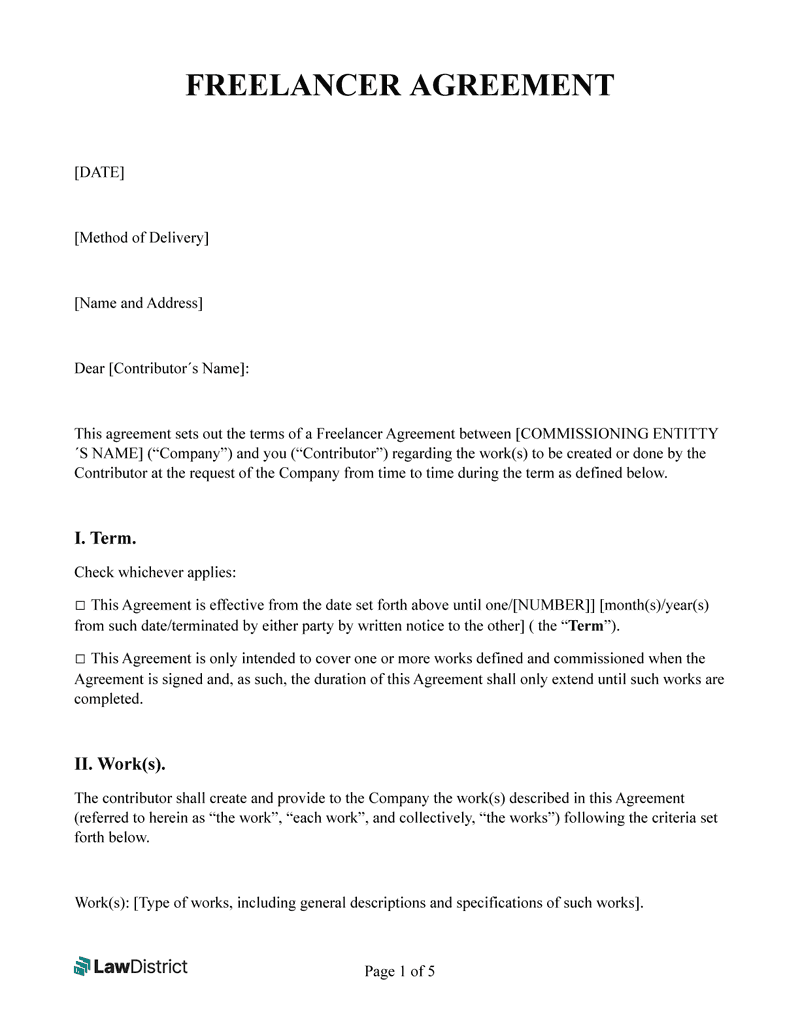Review and complete the following steps before writing your own Freelance Contract:
Term: Determine the duration of the agreement or indicate that it is intended to cover specific works until completion.

Work(s): Clearly describe the type of work to be created and provide general descriptions and specifications.

Contributor responsibilities: Specify that the contributor must deliver the work on a timely basis according to the specified formats, address, and media.
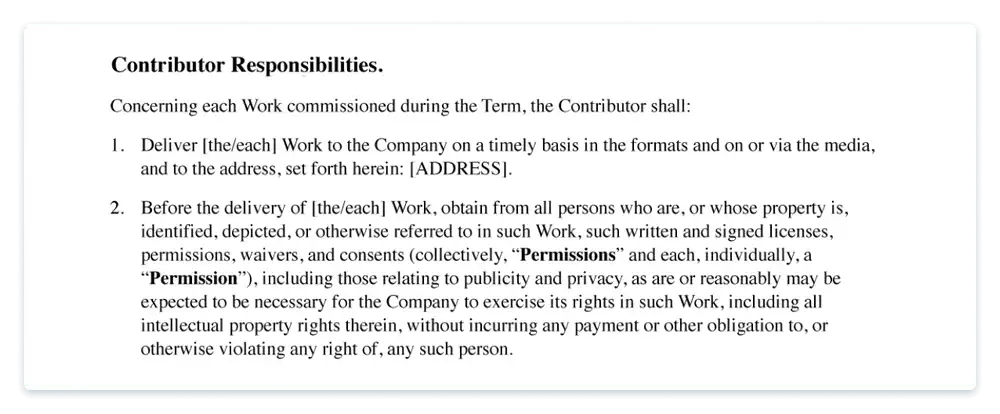
Grant of rights: State if the company will be the sole and exclusive owner of all rights, title, and interests in the work, including copyrights and intellectual property rights.
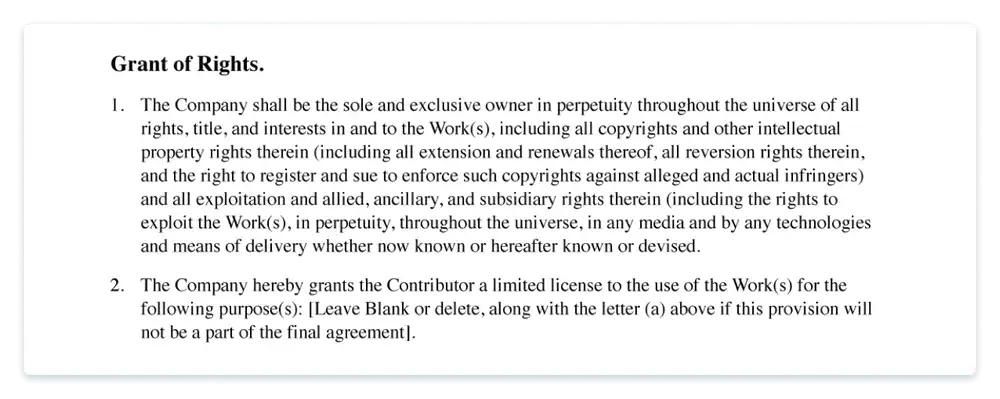
Ownership: Clarify if the contributor will retain ownership of the work, subject to the limited license granted to the company.

Use of the contributor’s name, likeness, and information: In this section, you can grant the company the perpetual right to use the contributor's name, image, likeness, and biographical information in connection with the work.

Payment: Specify the amount and basis for determining payment, and clarify if the company is not obligated to pay for work that is delivered late or does not comply with the agreement.
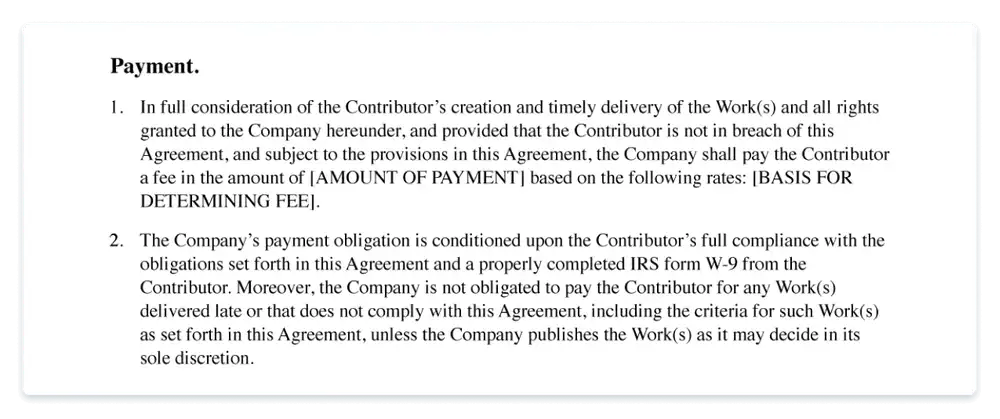
Indemnification: Require the contributor to indemnify and hold the company harmless from any claims or liabilities arising from a breach of the agreement.

Miscellaneous: Include provisions on assignment and transfer of rights, governing law, entire agreement, amendment requirements, and signature lines for both parties.
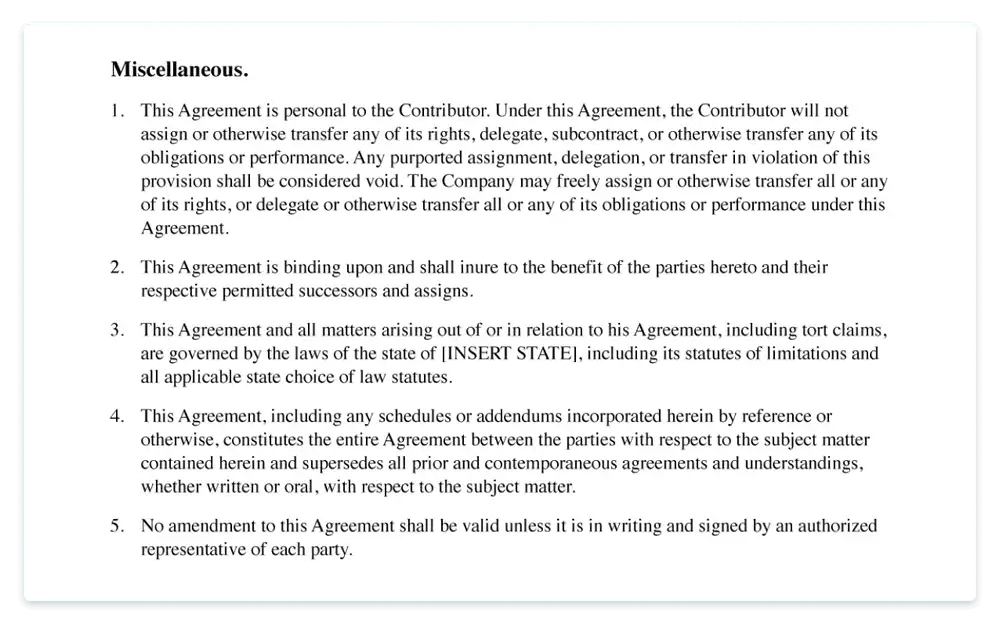
Use our pre-defined freelance contract template to create your document and avoid missing any important information.
